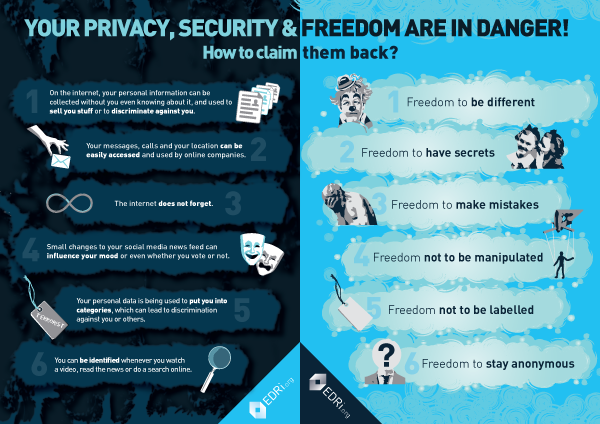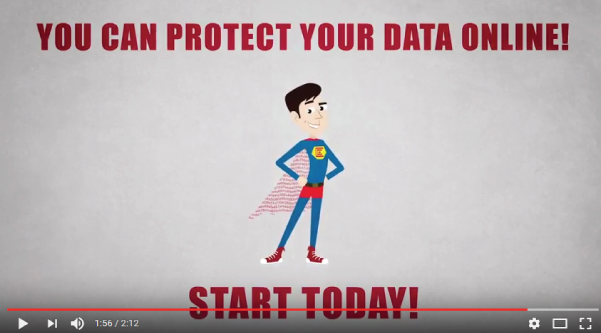Your privacy, security and freedom online: How to claim them back
This is the last blogpost of our series dedicated to privacy, security and freedoms. In this series, we have explained how your freedoms are under threat, and what you can do to fight back.
Privacy: What is it?
The right to privacy is a crucial element of our personal security. It’s essential for free speech and democratic participation. It’s a fundamental right in the primary law of the European Union and is recognised in numerous international legal instruments.
Privacy helps us establish boundaries to limit who has access to our bodies, places and things, as well as our communications and our information.
– EDRi member Privacy International
By setting these boundaries, you will be able to exercise other freedoms, such as you right to free expression, right to freedom of association, or right to access to information without constraints.
Privacy is not an abstract concept. It is a cornerstone on which many of our fundamental freedoms are built. We should have the right to privacy, in order to be able to speak freely, to organise, to campaign and live without fear of discrimination.
How to claim back your freedom online
In our previous blogposts we have introduced different tools and tips for better privacy when using the internet. Although it is difficult to ensure a complete anonymity online, these tips can help you minimise being exposed. As with many other things, the need for security is a very personal one, depending on your work, your location and your relationships with people who might be in danger.
Increasingly, using privacy tools is an act of good citizenship. If only journalists or activists are using privacy enhancing technologies, it will be easier to identify and target them. If we are all using such technologies, we are helping defend those who are fighting to defend us.
Our tips are a good first step to protecting your privacy. These programs, apps and add-ons will protect you, to a certain extent, from mass surveillance. However, if you believe you need extra security, for example, if you are a human rights activist in a country where such occupation might put you in danger, you should contact the Access Now “Digital Security Helpline”. They are helping people at every hour of every day, in six languages.
In this video, prepared by our member Association for Technology and Internet (ApTI) – Romania, John learns how to protect his personal data:
You can watch all our privacy videos here.
What can politicians do to safeguard your freedoms online?
The rules on online privacy in the EU will be soon updated. A proposal for a new ePrivacy Directive will be published in January 2017. This law deals with privacy and confidentiality of communications for the entire EU, and it affects issues related to your freedoms online. The way in which the freedoms we described will be protected in the following years or decades will depend on, to a high extent, how this new proposal develops. Are politicians ready to fight for your protection?
Do you want to help us to defend your rights? Stay informed and act with us to become part of the change that will ensure our privacy is respected in the online world.
Read all the blogposts of this series here, to know more about your freedoms online, and how they are threatened!



